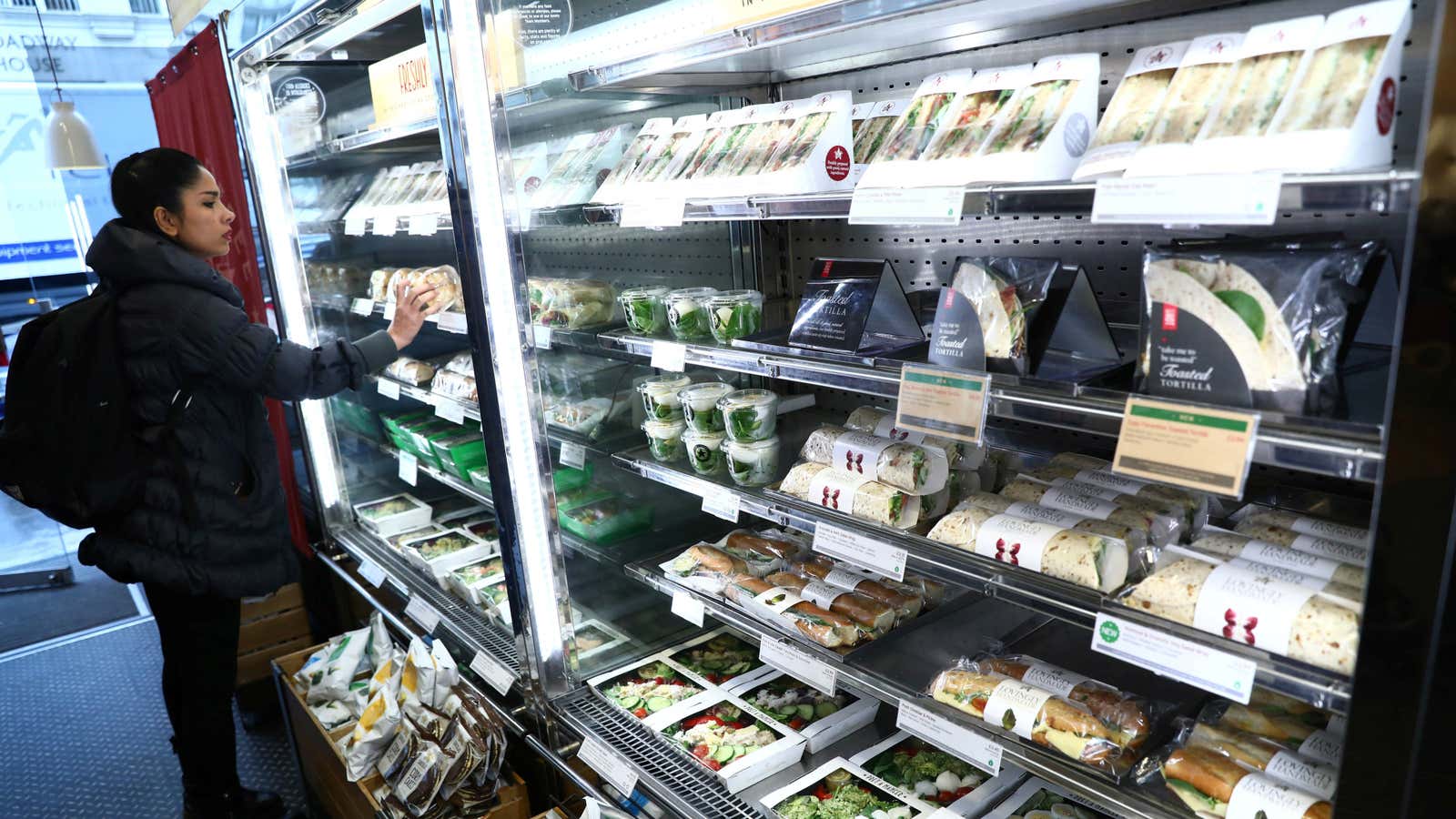Britain loves a sandwich. The triangular carbohydrate parcels are a lunchtime staple on British high streets, and there is no purveyor more prominent than Pret a Manger.
Pret is known for its rotating cast of sandwiches and for its whimsical marketing copy that promises pronounceable ingredients with “absolutely no nasties.” And that’s where it recently got into trouble: for claiming that their bread was all natural and free of “obscure chemicals, additives and preservatives.”
In fact, it is not. The bread contains E472e, E471, and E300, commonly-used additives which reportedly give bread its chewy texture and help the dough rise. The Campaign for Real Bread—a British institution if ever there was one—got involved, filing a complaint the Advertising Standards Authority (ASA), the UK’s advertising watchdog organization.
Subsequently, the ASA ruled that Pret is not allowed to refer to its bread as “natural” in an aspirational sense. The company was instructed to remove ads that featured the natural claim, warning the term should only be used when products sold are “comprised of natural ingredients produced by nature, not the work of man or interfered with by man.”
All of which leaves one to wonder: Why can’t Britain stringently investigate all forms of advertising with the same iron fist? Political advertising can make or break campaigns. But judging by examples from the recent past, the UK watchdog relinquished all responsibility from policing these types of ads.
One particular example that comes to mind is the now-infamous Brexit bus. In the run-up to the UK’s 2016 referendum, the large red bus—sponsored by Vote Leave, the officially designated campaign group in the referendum—toured the country with a rather convincing message: “We send the EU £350 million per week. Let’s fund our NHS instead.”
The bus was a powerful statement, suggesting that the reason the nation’s beloved NHS was chronically underfunded was simply because funds were wasted buttressing EU bureaucracy. It was backed by Boris Johnson, now the foreign secretary, and other prominent Brexiteers. And yet, mere hours after the shock result, one of Brexit’s leading proponents, Nigel Farage, told Good Morning Britain that the widely reported and repeated claim was not in fact literal—and that he never would have backed it. Additionally, Johnson has since conceded that it was a gross figure, and likely wouldn’t all be directed towards the NHS.
According to the Guardian, the ASA received a total of 374 complaints about misleading advertising in the lead up to the Brexit vote. And yet, the regulator of sandwich claims cannot also regulate campaigns that are central to the future of the nation’s democracy. The agency released a statement prior to Brexit “reminding everyone that political ads are not within our remit,” and that “the best course of action for anyone with concerns about a political ad is to contact the party responsible and exercise your democratic right to tell them what you think.”
